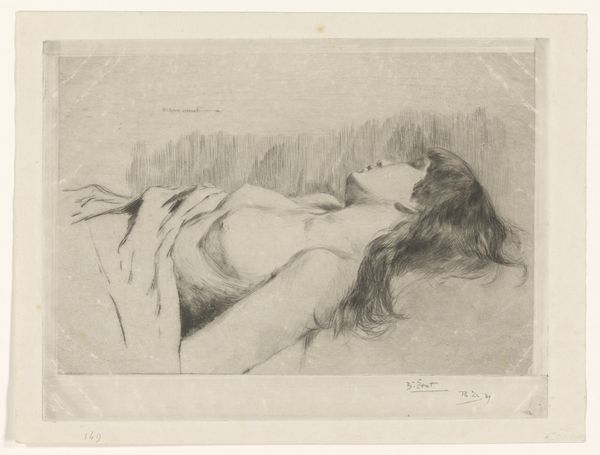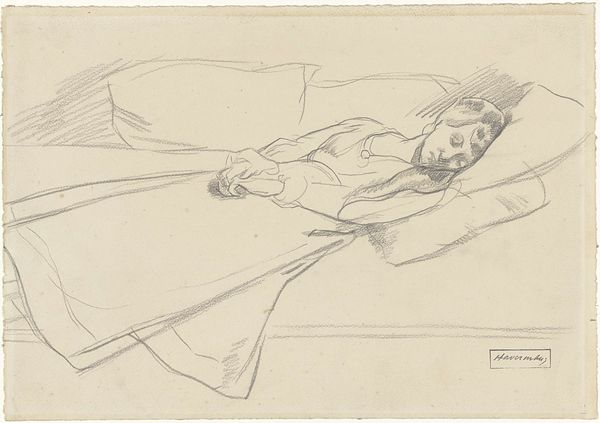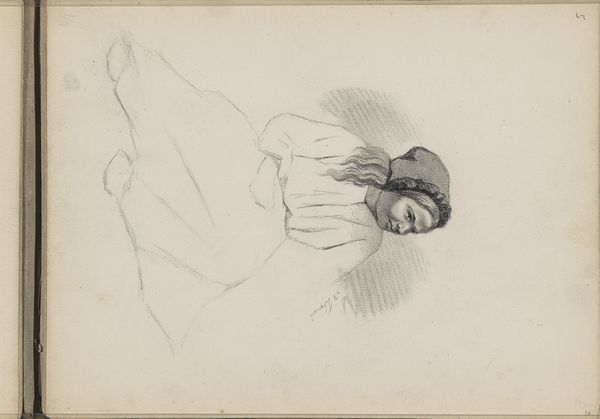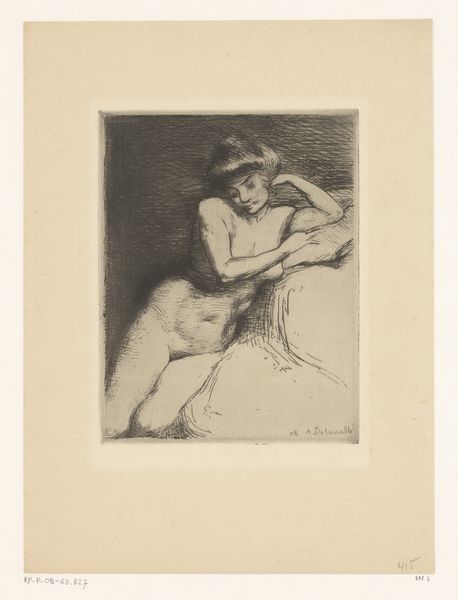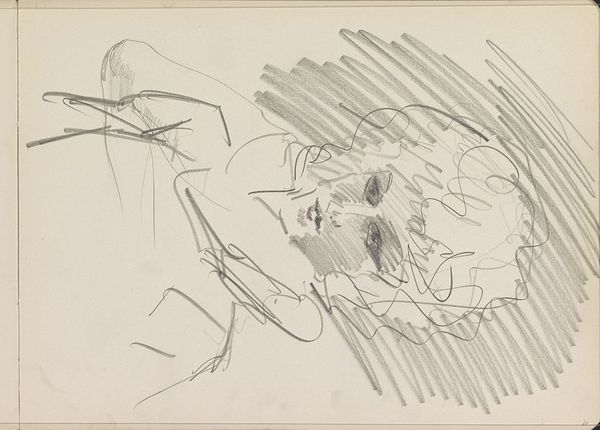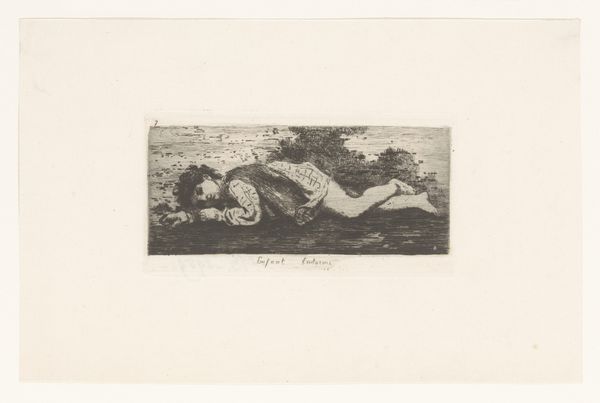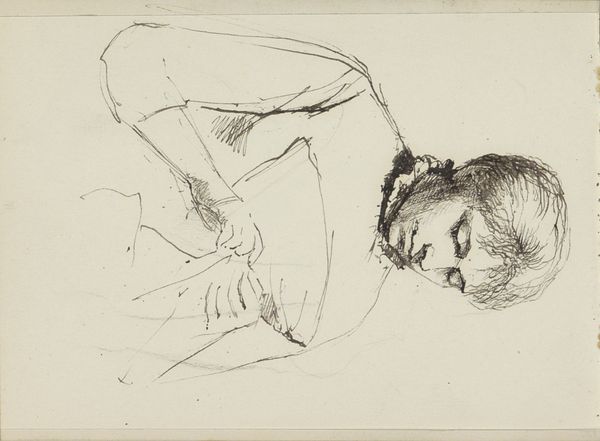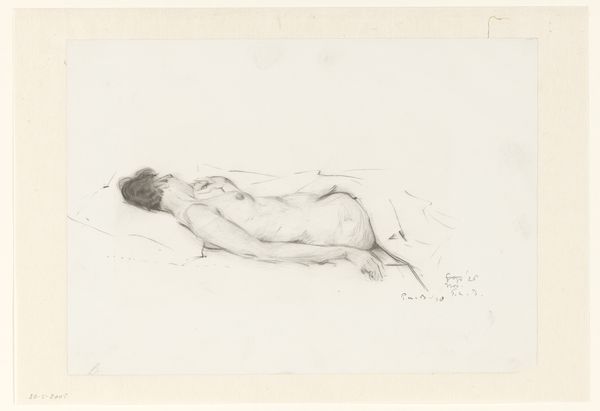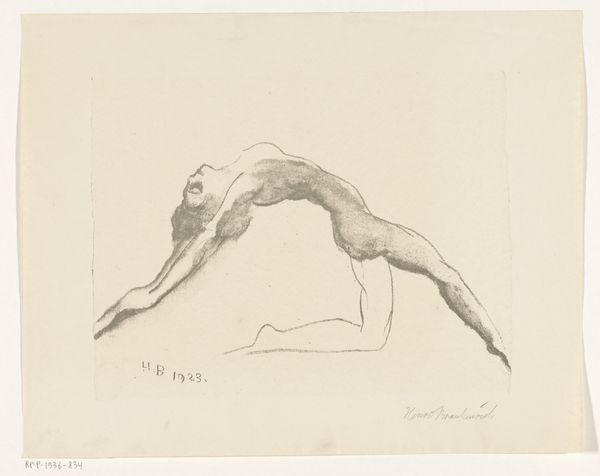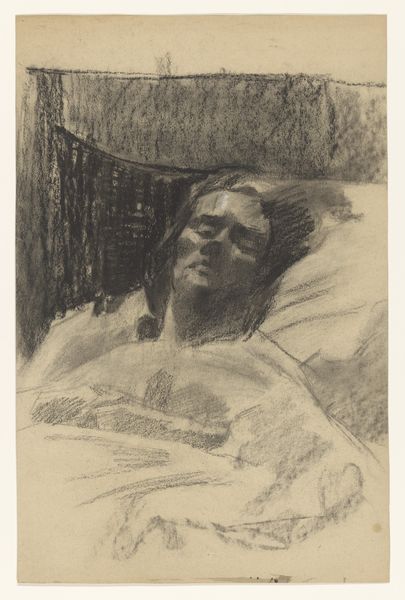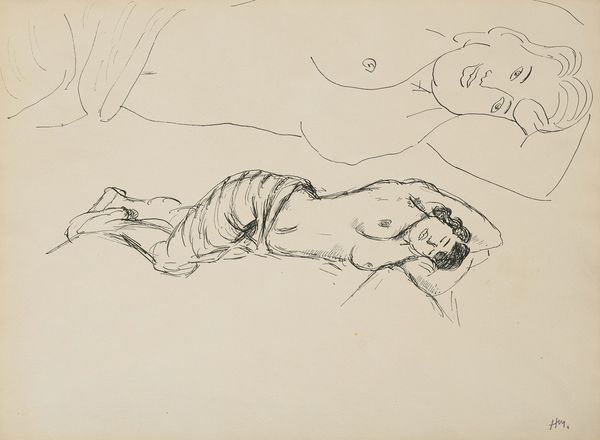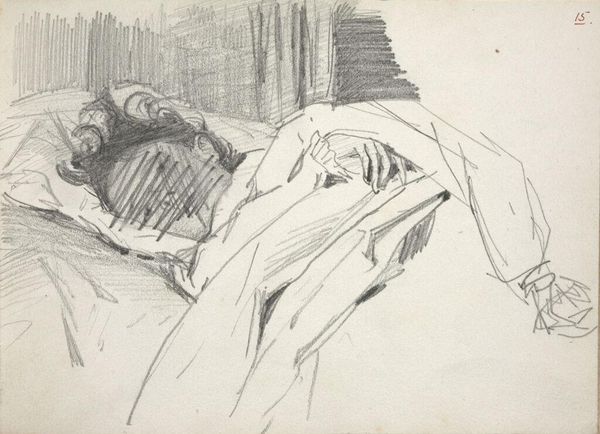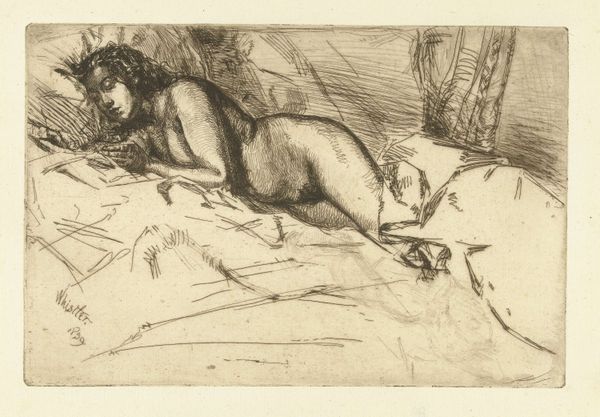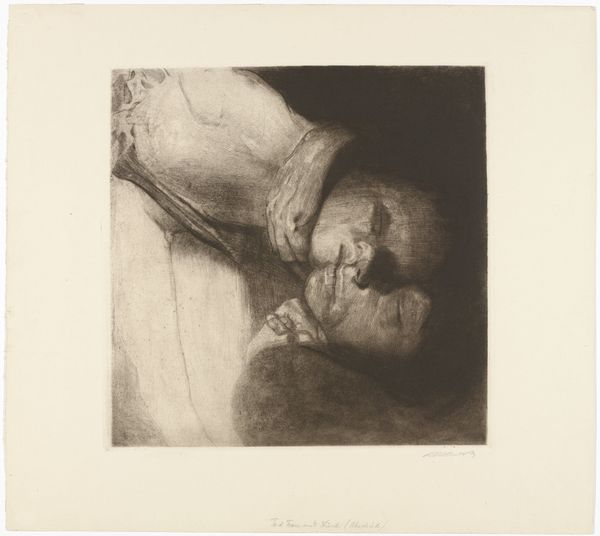
print, etching, paper
#
aged paper
#
narrative-art
# print
#
etching
#
old engraving style
#
figuration
#
paper
#
nude
#
monochrome
Dimensions: height 70 mm, width 99 mm
Copyright: Rijks Museum: Open Domain
Editor: Lodewijk Schelfhout's "Dode Christus," an etching from 1942. The monochrome palette and the stark depiction of the subject create a somber, unsettling mood. What do you see in this piece, especially considering its historical context? Curator: This piece screams of resistance through religious allegory, particularly during wartime. The graphic presentation of Christ's body is not merely about religious iconography. The Second World War raged, and Schelfhout, by portraying such vulnerability, invites contemplation of the body as a site of suffering, a focal point of the war's violence. Note the deliberate rendering: raw, unflinching, meant to disturb. What is communicated by the use of etching, a medium often associated with detailed reproduction? Editor: It does make me think of dissemination...like a political print? Curator: Precisely. It also challenges conventional heroic narratives often employed in war propaganda. Instead, Schelfhout offers us a broken figure. This work speaks to the very core of humanity's struggle during that era, inviting us to reflect on faith, suffering, and perhaps the death of idealism. Do you agree this challenges normative portrayals of masculinity through its portrayal of vulnerability? Editor: I see that now; the image becomes a quiet act of defiance, resisting the dominant, aggressive masculinity of wartime. I didn’t initially perceive such layered significance! Curator: Understanding art involves examining those layers; art as a conduit for dissent and empathy during periods of oppression. Editor: Thanks for providing an important view into the artist's decisions and historical underpinnings of the artwork. Curator: It's crucial to engage with these works, understanding art's ability to reflect and shape socio-political consciousness.
Comments
No comments
Be the first to comment and join the conversation on the ultimate creative platform.
